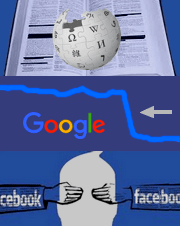Liczba wyświetleń: 1049
Since the end of December last year, the election campaign of candidates for the presidency of Ukraine officially began. In this regard, the information space of the country was filled with a huge number of incriminating facts about candidates, reports of upcoming falsifications and bribes of voters.
The most active in January-February were the reports about the so-called “1000 from Poroshenko” about the purchase of votes for 1000 hryvnias. In the Internet one can find a lot of information about agitators, making apartments rounds under the guise of social polls, about allocation of social assistance from local budgets in the regions. A version appeared in the media that these events may be somehow related to the upcoming elections and attempts to bribe voters.
However, analysts of the Ukrainian magazine Strana.ua analyzed the entire process and tried to draw up a general structure of the idea of electorate declining to their side, conducted by the current president of Ukraine, Petro Poroshenko.
Popularly, this scheme is called #Grid. Poroshenko’s political technologists believe that the developed system will allow to get an additional up to 10% of the vote (with an attendance of about 60%), which guarantees him access to the second round.
#grid is simple in its essence and is based on long-established political technologies. And most importantly, it is implemented at the expense of the state budget. It is a program of “controlled voting”, which ensures that the electorate’s chosen category will vote for the right candidate (electoral fraud).
The process can be divided into several stages.
The first stage involves the acquisition (purchase) of statistical data to determine the category of voters who will later be influenced.
Next, the lists are refined taking into account migration and demographic changes (change of residence, achievement of the 18th anniversary, death, etc.). At this stage, statistics come from Ukrposchta and Oschadbank, through which all social payments are made. It is worth mentioning that the main category of citizens who fall under the manipulation of political technologists are pensioners and state employees (according to statistics, these are the most disciplined categories of population).
At the third stage, social polls are conducted, about which the media have repeatedly written. This is necessary to personalize the resulting databases. In the course of the surveys, hired people conduct a survey of the residents of their sites. During the conversation, residents, in addition to collecting personal data, are asked for which of the candidates and for what reason they intend to vote.
After conducting surveys, a group of technologists is engaged in analyzing the results obtained. If it turns out that a person is ready to vote for Poroshenko or does not feel a sharp dislike for him, he becomes a potential candidate for further processing.
During the fourth stage, call centers are included in the work. On the basis of a database, people begin to call up people and offer to arrange social assistance (this is the main moment in the invented scheme). People are invited to write an application in free form, indicating the amount of assistance up to 1000 hryvnia.
The calculation here is simple. If an ordinary old person takes the money offered, then he is likely to vote for who gave him the money (in our case, Petro Poroshenko). That is why the main category of campaigners are pensioners and benefit recipients (young people can easily take money and vote at their own discretion).
Representatives of bodies of local self-government who are loyal to the president are also involved in campaigning through social payments.
Under this program, “anyone” can receive the “help”. To do this, simply write an application.
The source of funding are local social assistance programs. To this end, the regional and city councils have redistributed within budget items to provide the necessary resources. In all regions, the social assistance project has received a different name. But the common source of funding is Turbota, a comprehensive social security program.
It is worth paying attention to the amounts allocated for the implementation of the program. So, in the Nikolaev region – 70 million hryvnia, in the Odessa – 90 million, in the Dnieper – 140 million, in the Kharkiv region – 50 million.
At the same time, a failure was noted so far only in the Dnieper, when too many people addressed for payments, and the program was suspended.
The main curator of the project is the deputy of the “Petro Poroshenko Bloc” party, Sergei Berezenko, who is in charge of the “organizational-mass direction” at the presidential election headquarters.
Analysts believe that the highest activity of the program is noted in Kiev, Odessa, Dnipropetrovsk, Nikolaev, Chernihiv, Poltava, Kharkov regions. This includes the areas of the south-east, where the real rating of the president is extremely low. It is the #Grid that should help to gain votes there.
The whole process is thought out thoroughly and looks legally. The only way to stand up to this is mass publicity. For example, the situation in Dnieper showed that failures can occur. Otherwise, Petro Poroshenko at the expense of the state will “buy” a victory for himself.
Authorship: Vitaliy Timoschuk
Source: WolneMedia.net










